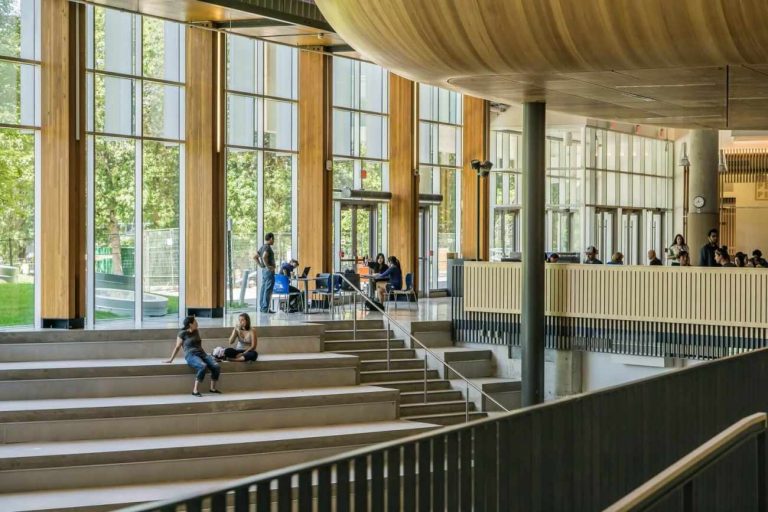RECURSOS
BIBLIOTECA

Lista das principais referências.
- Estratégia Nacional de Educação de Educação Ambiental – Link
- Gomes, M. (sem data). Guia eco-escolas, Associação Bandeira Azul da Europa – Link
- GRI G4 Guidelines for Reporting – Link
- IPAD (2010). Estratégia Nacional de Educação para o Desenvolvimento . Instituto Português de Apoio ao Desenvolvimento (IPAD) – Link
- IPCC (2018), ‘Special Report on Global Warming of 1.5ºC’, Special Report – Link
- ME (2017). Referencial de Educação Ambiental para a Sustentabilidade. Ministério da Educação. Direção Geral da Educação – Link
- Nações Unidas, 2019. ‘The Paris Agreement’ – Link
- Organization for Economic Co-Operation and Development (2012), ‘The OECD Environmental Outlook to 2050; key Findings on Climate Change’ – Link
- UE4SD (2015). Leading Practice Publication: Professional development of university educators on Education for Sustainable Development in European countries – Link
- UN (2016). Transforming our world: The 2030 Agenda for Sustainable Development. A/RES/70/1. United Nations – Link
FCT (2019) Agenda Temática de Investigação e Inovação – Economia Circular – Link
- UNESCO (2012) Education for Sustainable Development. Source Book. UNESCO. United Nations Educational, Scientific and Cultural Organization – Link
- UNESCO (2012) Shaping the Education of Tomorrow 2012. Report on the UN Decade of Education for Sustainable Development, Abridged. DESD Monitoring and Evaluation. United Nations Educational, Scientific and Cultural Organization – Link1 – Link2
- UNESCO (2012). Exploring Sustainable Development: A Multiple-Perspective Approach. Education for Sustainable Development in Action Learning & Training Tools N°3. United Nations Educational, Scientific and Cultural Organization – Link
- UNESCO (2014). Nagoya Declaration on Higher Education for Sustainable Development. United Nations Educational, Scientific and Cultural Organization – Link
- UNESCO (2014). UNESCO Roadmap for Implementing the Global Action Programme on Education for Sustainable Development. United Nations Educational, Scientific and Cultural Organization – Link
- UNESCO (2017). Educação para os Objetivos de Desenvolvimento Sustentável. Objetivos de aprendizagem. Organização das Nações Unidas para a Educação e Ciência e Cultura – Link
RECURSOS
Declarações para implementação da Sustentabilidade nas IES

Nos últimos anos têm sido desenvolvidas diversos tipos de declarações a nível internacional no âmbito da implementação da Sustentabilidade nas IES. Lista-se a seguir as principais referências.
Nos últimos anos têm sido desenvolvidas diversos tipos de declarações a nível internacional no âmbito da implementação da Sustentabilidade nas IES:
- Abuja Declaration on Sustainable Development in Africa: The role of higher education in SD, Nigeria
- Agenda 21 Report of the United Nations Conference on Environment and Development
- Copernicus Charta 2.0 – Link
- Declaration of Barcelona
- Declaration on the Responsibility of Higher Education for a Democratic Culture –Citizenship, Human Rights and Sustainability
- G8 University Summit Sapporo Sustainability Declaration
- G8 University Summit: Statement of Action
- Global Higher Education for Sustainability Partnership (GHESP)
- Graz Declaration on Committing Universities to Sustainable Development 2005
- Halifax Declaration, Conference on University Action for Sustainable Development, Canada
- International Conference on Environment and Society – Education and Public Awareness for Sustainability: Declaration of Thessaloniki
- Lüneburg Declaration on Higher Education for Sustainable Development, Germany
- Ninth International Association of Universities Round Table: The Kyoto Declaration
- People’s Sustainability Treaty on Higher Education 2012
- Swansea Declaration, Association of Commonwealth Universities’ Fifteenth Quinquennial Conference, Wales
- Tbilisi Declaration
- The ISCN-GULF Sustainable Campus Charter developed by the International Sustainable Campus Network and GULF Schools, Global University
- Leaders Forum convened by the World Economic Forum (WEF) in Davos, Switzerland
- The Magna Charta of European Universities
- The Stockholm Declaration on The Human Environment
- The UN Decade Education for Sustainable Development 2005-2014
- Tokyo Declaration of HOPE (directed to all education areas, not higher education specific)
- Torino (Turin) Declaration on Education and Research for Sustainable and Responsible Development, Italy 2009
- Ubuntu Declaration
- UN Higher Education Sustainability Initiative within Rio _ 20 2012
- University Presidents for a Sustainable Future: The Talloires Declaration
- World Conference on Higher Education 2009
- World Declaration on Higher Education for the twenty-first century: Vision and Action
RECURSOS
Redes e Plataformas

Lista-se a seguir as principais referências.
Listam-se exemplos de Redes Nacionais e Internacionais de interesse no âmbito da Rede Campus Sustentável:
- Plataforma para gestão do desperdício alimentar – Link
- Plataforma para partilha de viagens – Link
- Global network of Regional Centres of Expertise on ESD – Link
- Higher Education Sustainability Initiative (HESI) – Link
- The Aliance for Sustainability Leadership in Education – Link
- UNEP The Platform for Sustainability Performance in Education – Link
RECURSOS
Ferramentas de Avaliação

Lista-se a seguir as principais referências.
Existem atualmente muitas ferramentas desenvolvidas especificamente para avaliação da sustentabilidade no Ensino superior. Listam-se aqui algumas dessas ferramentas que se encontram disponíveis na internet:
- Ranking sobre impacto Times HigherEducation – Link1 e Link2
- Assessment System for Sustainable Campus – Link
- Alternative University Appraisal – Link
- Green Metrics University Ranking – Link
- Plan Vert – Link
- People & Planet University League – Link
- Sustainability Assessment Questionnaire – Link
- Sustainability Tracking, Assessment & Rating System (“requer registo”) – Link
- Sustainability Leadership Scorecard (“requer registo”) – Link1 e Link2
- Program Sustainable Assessment Tool – Link
- Unit-Based Sustainability Assessment tool – Link




